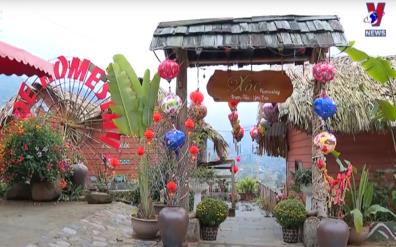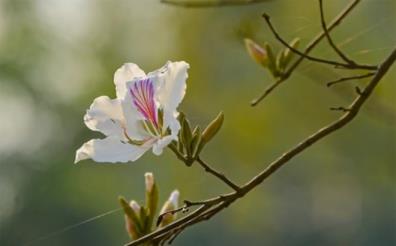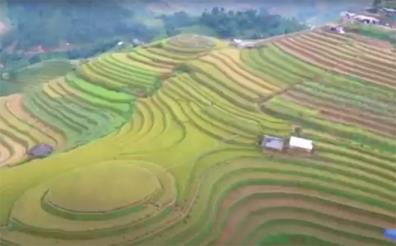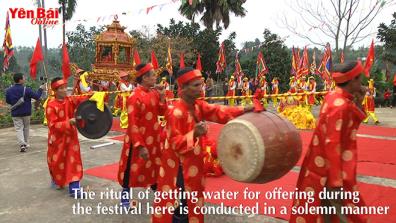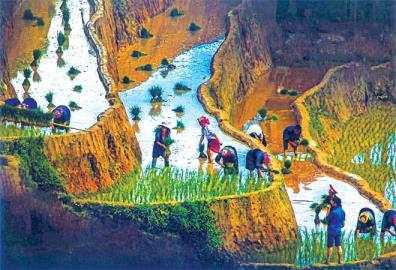Currently, Yen Bai City is home to 24 historical relics, including three nationally recognized revolutionary heritage sites and 21 provincial-level sites (comprising four revolutionary relics and 17 temples and pagodas). Early spring festivals at these sacred locations attract approximately 10,000 visitors who come to pay homage, admire the scenery, and pray for fortune and peace.
A prominent spiritual landmark is Nam Cuong Mother Goddess Temple, originally constructed in 1923. It is dedicated to the Holy Mother Linh Tu, Tran Dynasty’s Saint Hung Dao Dai Vuong, and Princess Lieu Hanh, reflecting the people's reverence and prayers for blessings and peace. After a period of historical upheaval, the temple and communal house of Nam Cuong were restored in 1998 with community contributions, maintaining their traditional architectural style. In 2005, the Nam Cuong Temple and Van Thang Pagoda in Nam Cuong Ward were officially recognized as provincial cultural and historical heritage sites by the People's Committee of Yen Bai Province.
Annually on the fifteenth day of the first lunar month, the Nam Cuong Mother Goddess Festival is held with solemn rituals and vibrant festivities. The ceremony begins with a procession and incense offering to the Holy Mother Linh Tu and the Buddha, praying for favorable weather and peace for the people. A notable ritual is the symbolic "release of birds for peace,” expressing a deep spiritual connection between humanity and nature. The selected family entrusted with this meaningful act must be well-respected, prosperous, and raise successful, virtuous children. Twelve doves are released, symbolizing the hope for peace and happiness throughout all twelve months of the year.
Following this ritual is a longevity ceremony honoring elderly residents, exemplifying the Vietnamese tradition of "respecting the elderly and loving the young." The ward also presents awards to outstanding students and conducts a ceremonial release of fish at the central lake, symbolizing wishes for happiness and success in the new year. One of the most anticipated events of the Nam Cuong Temple Festival is the traditional boat race, attracting widespread participation. The race not only promotes physical health but also strengthens community solidarity and inspires optimism for a better future.
According to Nguyen Ngoc Ha, Secretary of the Nam Cuong Ward Party Committee, although the Nam Cuong Temple – Communal House – Pagoda Complex was severely damaged by Typhoon No. 3 in 2024, the ward proactively proposed and received approval from the city to renovate the facilities. This initiative ensured that the festival could still take place, catering to the cultural and spiritual needs of locals and visitors alike. The restoration has given the area a renewed and dignified appearance, particularly the temple grounds and surrounding lake embankments.
In addition to traditional activities, the 2025 festival featured new highlights, such as Quan Ho folk singing performed on boats, floating stages, and bridges. These innovations enriched the festival, embedding deep historical and cultural significance and leaving a lasting impression on both residents and tourists.
Situated on the left bank of the Red River in Yen Ninh Ward, Tuan Quan Temple has long been a sacred site where Buddhist devotees from near and far gather to offer prayers. It is regarded as a must-visit destination during the spiritual tourism season each spring. Every year on the 3rd day of the 3rd lunar month, the temple hosts the Mother Goddess Commemoration Festival to pay tribute to the revered deity Lieu Hanh, attracting thousands of pilgrims and visitors.
Do Minh Tram, a resident of Yen Ninh Ward, shared, "My family has always maintained the tradition of visiting temples and pagodas at the beginning of the year or during Mother Goddess festivals to pray for blessings and prosperity. As an offering, I present incense, flowers, and tribute items in the hope that our family will be healthy, happy, and safe."
Over the course of history, Tuan Quan Temple has served not only as a spiritual and cultural hub but also as a site of national significance. It witnessed many pivotal events and became a rallying point for patriotic revolutionaries during times of resistance. Recognized in 2005 as a provincial cultural and historical heritage site, the temple continues to preserve both tangible and intangible cultural artifacts. Following the ceremonial offerings and incense rituals, the festival features vibrant folk games and cultural activities, including altar display contests, tug of war, Chinese chess, stick pushing, and blindfolded duck catching. These lively traditions contribute to the festive atmosphere and foster cultural exchange among the broader community.
Luong Xuan Quyet, Chairman of the People's Committee of Yen Ninh Ward, emphasized, "Maintaining and organizing these festivals is essential not only for preserving the unique Mother Goddess worship culture of our people but also for inspiring local authorities and communities to fulfill their responsibility in protecting and promoting cultural heritage in tandem with tourism development."
The sacred traditional festivals held at temples and pagodas across the city continue to amplify intangible cultural values. These include rituals and spiritual practices closely tied to historical and cultural sites such as Tuan Quan Temple (Yen Ninh Ward), Ba Ao Trang Temple (Hop Minh Ward), and Nam Cuong Temple (Nam Cuong Ward). Through these efforts, Yen Bai City is working toward building regional tourism linkages and offering cultural-historical tours, scenic sightseeing, and spiritual experiences, making the city an increasingly attractive destination for domestic and international visitors.
Bui Minh
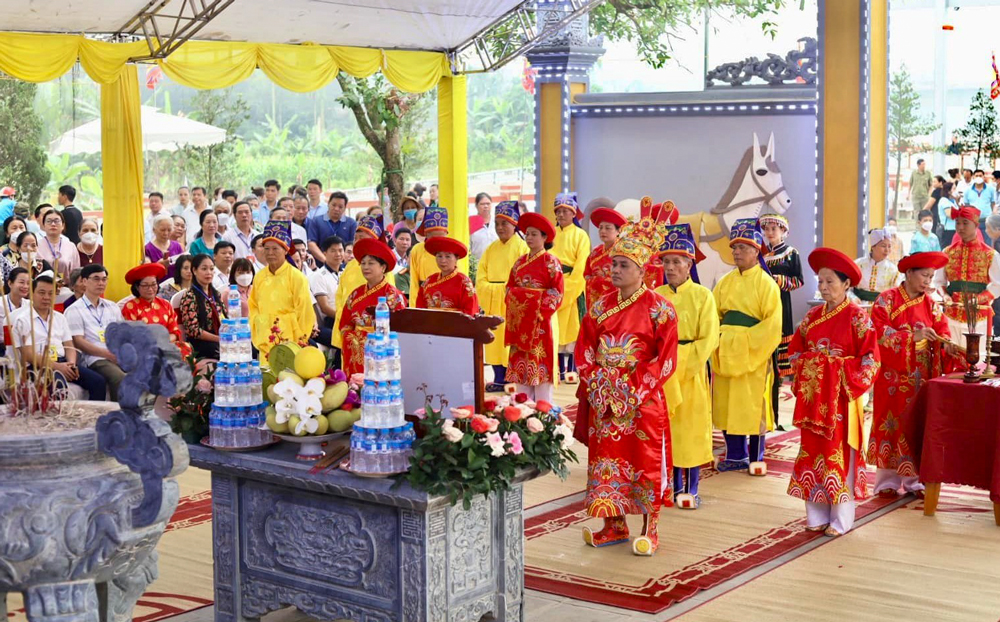



.jpg)



